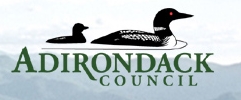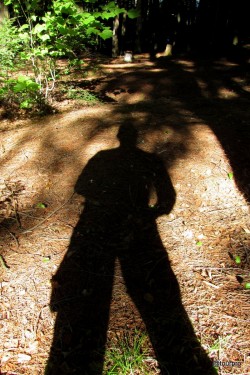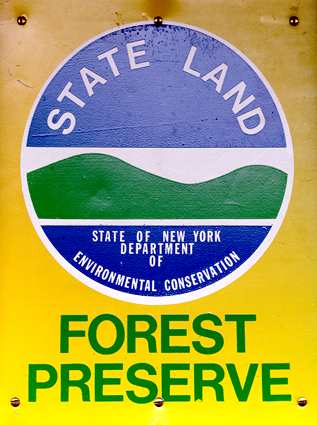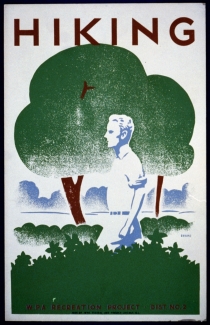Donation Prevents Three Tons of Real Carbon Emissions from Northeast Power Plants, Helps Organization Buy & Extinguish Government-Issued Pollution Rights
 ALBANY, NY – The only environmental organization in America to compete with power companies for carbon allowances at government-run carbon auctions is asking the public to help retire those allowances in celebration of Earth Day. The Adirondack Council announced today that it has lowered the price for retiring three tons of carbon from the normal $25, dropping it to $19.70 to commemorate the first Earth Day in 1970. For a tax-deductible contribution of $19.70, donors will receive an embossed Carbon Reduction Certificate commemorating the permanent retirement of three tons’ worth of allowances.
ALBANY, NY – The only environmental organization in America to compete with power companies for carbon allowances at government-run carbon auctions is asking the public to help retire those allowances in celebration of Earth Day. The Adirondack Council announced today that it has lowered the price for retiring three tons of carbon from the normal $25, dropping it to $19.70 to commemorate the first Earth Day in 1970. For a tax-deductible contribution of $19.70, donors will receive an embossed Carbon Reduction Certificate commemorating the permanent retirement of three tons’ worth of allowances.
The organization has participated in Regional Greenhouse Gas Initiative (RGGI), the nation’s only government-mandated carbon emissions reduction program, since its inception in 2008. Power companies must purchase one allowance for every ton of carbon they emit from their smokestacks.
A limited number of allowances are sold each year, and each year there are fewer allowances sold, reducing the amount of carbon that may be emitted. As allowances become scarce and the price rises, the incentive to clean up emissions increases.
RGGI was created four years ago by 10 Northeast states ranging from Maine to Maryland. RGGI sells allowances at auctions. Auction proceeds go back to the 10 states to fund clean energy and energy conservation programs.
 The Adirondack Council is the only environmental organization that competes against the power companies and purchases allowances at RGGI auctions. So far, the Council has purchased 14,000 allowances and has retired more than half of those via Carbon Reduction Certificates.
The Adirondack Council is the only environmental organization that competes against the power companies and purchases allowances at RGGI auctions. So far, the Council has purchased 14,000 allowances and has retired more than half of those via Carbon Reduction Certificates.
“Anyone who wants to help us can retire three tons of carbon by buying a Carbon Reduction Certificate,” said Adirondack Council Executive Director Brian L. Houseal. “Every carbon allowance we retire causes a one-ton reduction in the total amount carbon emissions allowed by the government.
“You can keep the certificate yourself, or give it to your favorite environmentalist,” he explained. “We are happy to personalize them. It’s a great way to do something real, meaningful and personal to reduce carbon emissions and fight against catastrophic climate change.
“You could bid at the auctions yourself, but the minimum lot size is 1,000 allowances,” Houseal said. “That just isn’t affordable for most individuals. We have thousands of members, so it was easier for us to get started.”Houseal said it was time the nation got started too.
“Over the past decade, the Adirondack Park has been battered by severe storms and record-breaking floods. Winter is now two weeks shorter than it used to be up here,” Houseal said. “Americans have to get serious about curbing the effects of climate change now. We would like to see RGGI become a national program, and then an international model for reducing greenhouse gas emissions quickly and inexpensively.”
RGGI was the first carbon-reduction program in the nation. California and several Midwest states are forming similar trading programs.
“Allowance trading has worked wonders in reducing acid rain, smog and fine particle emissions from power plants across the country,” he said. “It is our best hope for reducing carbon dioxide and other greenhouse gases without causing economic harm. Allowance trading gets the job done, and has already saved the power industry – and we customers — billions of dollars.”
All revenue from the Adirondack Council’s Carbon Reduction Certificates goes back into the Adirondack Council’s advocacy, public education and carbon-reduction programs. To make a contribution and receive a Carbon Reduction Certificate, people can call toll-free (877) 873-2240 or click here.
A national leader on acid rain and climate change, the Adirondack Council is a privately funded, not-for-profit organization founded in 1975. The Council is dedicated to ensuring the ecological integrity and wild character of New York’s 9,300-square-mile Adirondack Park.
The Council carries out its mission through research, education, advocacy and legal action. Adirondack Council members live in all 50 United States.







No Comments so far ↓
There are no comments yet...